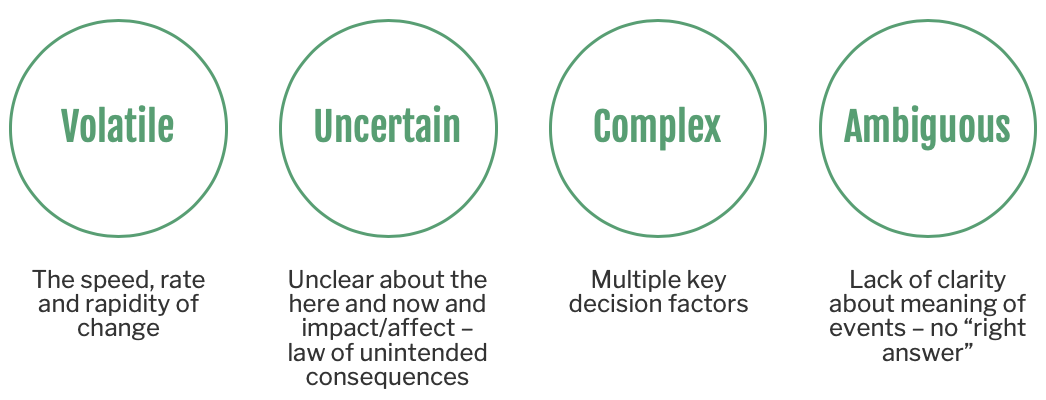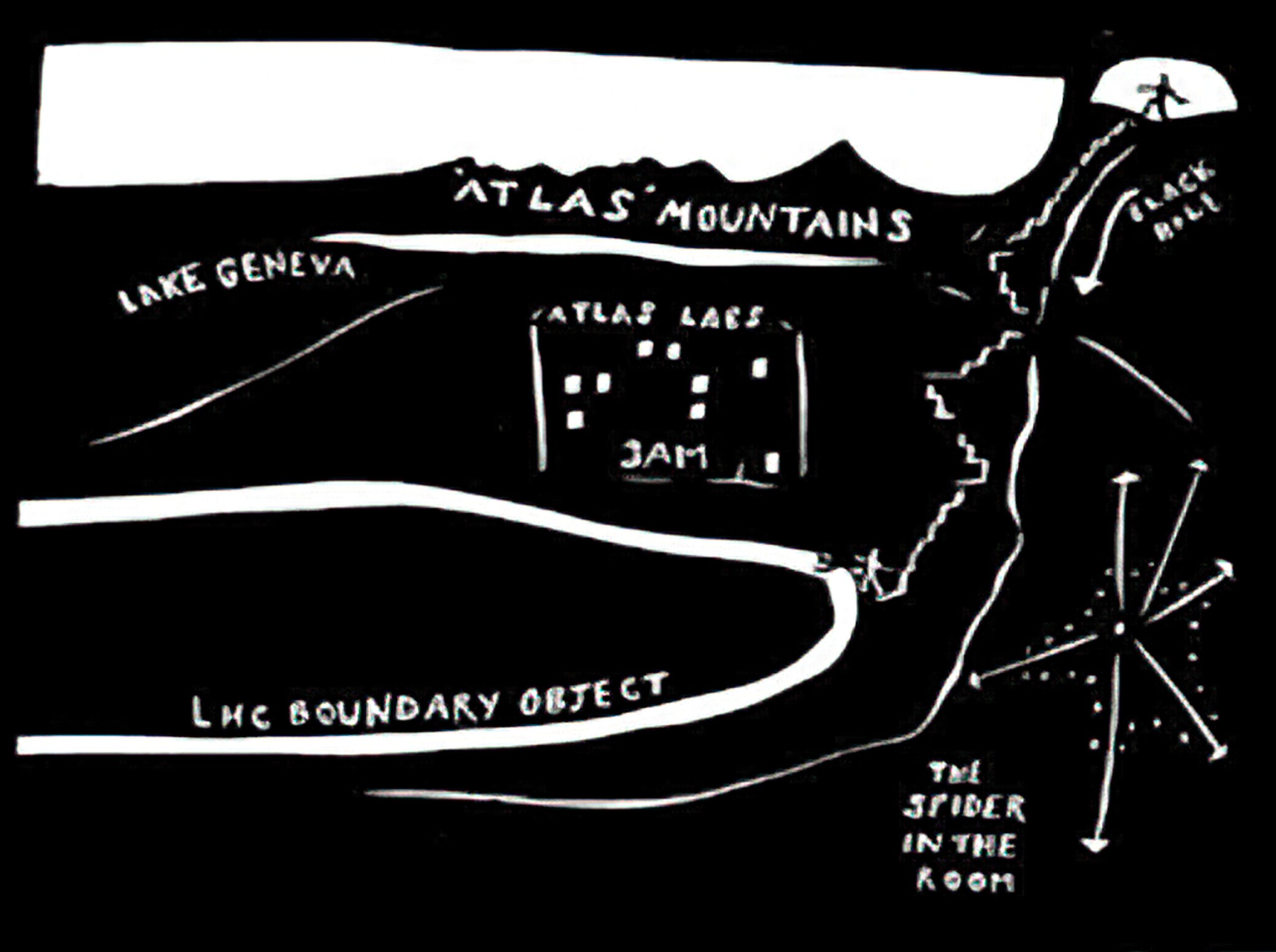There’s an old story about JFK on a tour of NASA in the 60s.
After meeting and shaking hands with astronauts, scientists and senior NASA administrators, the President sees a janitor sweeping the floor and goes over to him.
He asks “and what is it that you do here?” expecting a laugh in response, at the man’s expense. The janitor simply replies “I help to put a man on the moon.”
Although it is almost certainly apocryphal, this story is used by management consultants to demonstrate the power of “purpose alignment” across an organisation – where each and every staff member knows why they come to work every day.
The point of referencing this story is this – no SU we’re aware of has this level of strategic alignment across its staff team. If you speak to the average SU co-ordinator, never mind the average SU student staff member or course rep, they won’t know the broader purpose of the organisation.
They might say something about the student experience, but they’re more likely to say something about their day-to-day job. And almost certainly if you ask the co-ordinator next to them, they’ll say something slightly different.
While at Salford we’re particularly proud of some recent staff engagement scores (in particular our recent staff engagement award from the SU Strategy Exchange Conference), we’re absolutely one of those that doesn’t have this level of alignment of purpose. But what we can say is that we’re on a mission to change that.
Raison d’être
Our original insight came back in 2019 when we realised that we didn’t really know what our raison d’être (reason for being) was as an organisation. We knew that we stood for the student experience but we didn’t really know why the student experience was a good thing.
Was it what Kant would call a “categorial imperative”- an ultimate social good? We didn’t think so. And, once we thought about it for a few years, we realised that the government and even many universities didn’t really believe in the student experience either – or at least not our version of what “student experience” means, particularly in a modern university.
So not only were we not purpose aligned, the purpose that we maybe did have was the wrong one.
When we went back to basics we realised a shift had occurred in higher education that SUs hadn’t reflected. We realised that our core raison d’être was actually our institution, or rather the idea of our institution.
We realised that our university, in principle, was an incredibly transformative and powerful organisation that can, and does, change the lives of students every day. The only issue was that there are barriers to that transformational power.
And so our new organisational purpose was born – we would “confront and overcome the barriers to learning at the University of Salford.” This seemed more aligned to the modern conceptualisation of higher education.
Strategic prioritisation and alignment
We realised quite quickly that this new approach helped us to align and reconcile the organisational purpose with the annual manifesto pledges of sabbatical officers.
But the high officer turnover issue remained – we needed a more strategic approach if we were going to ever affect meaningful change on any of these barriers over the long term.
We had to stop taking a scattergun approach and stop wasting resources on half-baked objectives that wouldn’t go anywhere.
Using the “confront and overcome barriers” approach we asked a market research company to help us with our strategy review in 2022.
They came up with an innovative approach to help us identify what was the largest barrier to learning at the University of Salford – what affected the most students the most deeply.
The team had all sorts of ideas of what it would be (most thought it would be mental health) and then were quietly blown away when we got the answer back.
Loneliness and isolation from the student community was the largest barrier to learning at the University of Salford.
There’s a lot to read
Of course we’d seen the work that Wonkhe and others had done on loneliness, but not really absorbed it as a major issue or priority.
And we certainly hadn’t thought of it as the major component of our strategy, which is what it turned out to be.
Loneliness is the number one predictor of student psychological distress (predominantly depression or anxiety). It increases your chance of premature death by 30% and is more dangerous than smoking or being chronically obese.

And students aged under 30 are some of the loneliest people in the UK right now, with up to 1 in 5 of them feeling lonely every day, with a third feeling lonely every week. And over 33 per cent of Salford students are unsatisfied with their ability to make friends, even in 2023 and long after the peak of Covid restrictions.
BHAGs and boundary objects
Given this, we quickly established the elimination of loneliness on campus as our Big Hairy Audacious Goal (BHAG) for the organisation. It’s the flip side of belonging – another “purpose” we’ve been pursuing for about a decade now.
All we need is a theory of change and deliberative evaluation techniques to ensure that our belonging activity actually does something to address loneliness.
A BHAG is a concept popularised by management theorist Jim Collins, the idea is to bring staff together in the pursuit of a “north star”. It has to be something that we care deeply about as an organisation, we can be the best at in the world, and drives our economic engine. Student loneliness ticks all three boxes.
We also then realised that having loneliness as our BHAG is also a “boundary object” proposed by the academic Max Boisot. Boisot says that a boundary object is a notion or tool that facilitates the transfer of information across different perspectives and interpretations.
Boundary objects help organisations overcome issues with knowledge sharing and collaboration in a VUCA context, including by addressing bureaucracy.

Probably the best example of a boundary object is the ATLAS experiment at CERN, where over 3000 academics came together from over 180 universities to build a particle detector, and yet there were no managers and it was therefore a completely collegiate approach.

Becoming anti-bureaucratic and people-centric
Separate yet intertwined with our strategy development has been the idea that partly why SUs are great is because they’re not bureaucratic – it’s one of our sector’s strategic capabilities.
In fact many SU staff choose to work in SUs because they can get more stuff done than if they were a part of the university “machine”.
However, this belief has also blinded us to the idea that we are actually still bureaucratic, and we can improve on our systems, processes and culture to enable even better strategic capabilities.
An example of this is our “Kickstarter” project where we replaced our strategy development fund with an approach where staff are simply given money to do things that they want to do, with no oversight from managers or SLT – as long as it meets our strategic goals or theory of change (staff do have to check in with managers for workload/wellbeing considerations).
We’ve also done work to remove bureaucracy from our financial processes, with co-ordinator staff given purchase cards and given the freedom to spend what they need to deliver on their work, with appropriate oversight.
Perhaps one of the more controversial things we’ve done to empower staff, improve their wellbeing and reduce bureaucracy is implement our new (and award winning) Flexible Time Off Policy.
This sets staff a minimum number of days they’re expected to take off each year as annual leave, and makes the maximum number of days allowed only limited by the needs of the business.
The policy has had tremendous success in just one year, with a 33 per cent increase in leave taken, a 25 per cent increase in staff retention and a 56 per cent decrease in sickness days lost.
Finally, one of the “weirder” things that Ed has done is to develop a published “Second Brain” as a CEO in the sector. This is a new idea where someone publishes much of their work notes and ponderings, on the understanding that these ideas are not complete.
In fact, you can read a fully hyper-linked version of this article on Ed’s Second Brain, if you want to. The idea of this is, again, to empower staff, and share knowledge and understanding across the team – to create a purpose-driven organisation with trust and empowerment at its core.
“So what?”
We’d like to think we’re doing well. 96 per cent of career staff said they would recommend us as a good place to work. We’re ahead of other SUs across the vast majority of our most recent staff engagement report.
And for the first time we’re in the second quartile for student satisfaction in the NSS Results 2023. So by no means amazing, but still we’re heading in the right direction.
We’ve still got lots to do. We’ve now got to convince the university that we’re the ones to address loneliness on campus, and that this will deliver gains for them.
And we’ve also got to still do lots more to empower our colleagues, from removing unnecessary paperwork to truly coming from a position of 100 per cent trust from within the organisation, particularly (it has to be said) when it comes to our student officers and our student staff. Otherwise, we’re not much of a students’ union, are we?
On that point it’s become particularly clear over the past month or so that SUs need to extend our culture and approach beyond organisational boundaries to truly lead the culture on campus and ensure our values can be enjoyed by the many students that come into contact with us.
We’ve got to take a leaf out of European SUs (thanks Wonkhe for organising the tours!) and start to cultivate belonging, respect, kindness and tolerance in students not just when they engage in SU roles and projects, but also in their daily lives.
The best way to do this is to trust students in more roles across our organisations – where strategy “execution by the whole” isn’t just our whole team of staff and officers, but an ambition that strategy is executed by the whole of our membership.
Finally there’s something about that NASA story that we’ve always struggled to pinpoint until we started discussing this article – the most impressive thing about it isn’t the purpose alignment across the staff hierarchy.
In our opinion it’s actually that the janitor had the gumption – the gall – to say to the US President something he knew was a little cheeky, but that needed to be said, and to call JFK out for being a bit of a d*ck.
There was psychological safety there, and it allowed for an important lesson to be learned. We need more of that, now more than ever.



















